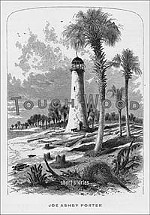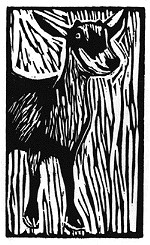Lawnboy
Reviewed by Martin Wilson, Fri., Dec. 10, 1999
Lawnboy
by Paul LisickyTurtle Point Press, 386 pp., $13.95 (paper)
Paul Lisicky currently divides his time between Houston and Provincetown, Massachusetts, but he's clearly still haunted by his roots -- the overdeveloped, swampy, and always sun-soaked landscapes of South Florida. This Florida, the "bloated appendage at the end of the United States," is where Lisicky sets his uneven first novel, Lawnboy.
Lawnboy opens, quite literally, with a bang -- at least of the sexual variety. The narrator, 17-year-old Evan, is a budding homosexual whose life so far has consisted only of crushes and occasional jollying around with other curious boys. Then, on the eve of his high school graduation, he begins caring for the lawn of a neighbor, an older man named William. Soon enough Evan is doing a lot more than trimming William's hedges. The two begin an affair, and when Evan's parents hear of it they demand he give William up or move out. Try as he might to suppress his true feelings, he eventually moves in with William.
The novel begins promisingly, as Lisicky charts the ups and downs of not just any relationship, but one between an older man who's no longer an energetic horn-dog and a young man who's just starting out in his quest for sexual and emotional fulfillment. In this section of the novel, Lisicky charts Evan's conflicting emotions deftly.
But when Evan leaves William and moves in with his estranged brother, who runs a broken-down motel near Miami, the novel begins to sag beneath too much mopey melodrama. One major problem is Lisicky's fondness for having Evan spit out page after page of internalized questions. Not a page seems to go by where Evan isn't asking himself overwrought questions like, "Wasn't it better to extinguish oneself than to lose one's light, little by little?" or "Crying, crying: Why couldn't I stop myself from crying?" It's a writing tick that begins to grate after 300 pages. Evan, precocious and engaging early in the novel, becomes a big drag as the novel progresses.
The novel is peppered with stories from Evan's younger years, including a humorous and moving account of his time at a summer camp where he befriended a boy known as "Dickless." The novel is strongest in such episodes, hitting musical notes of insight and wit that the main narrative strains for. Moreover, Lisicky's descriptions of the modern Floridian landscape -- teeming with palm trees and other flora, condos, huge drainage ditches -- are lovely. But ultimately, the novel as a whole fails to ignite, remaining an oft-told tale that is disappointingly inert.










